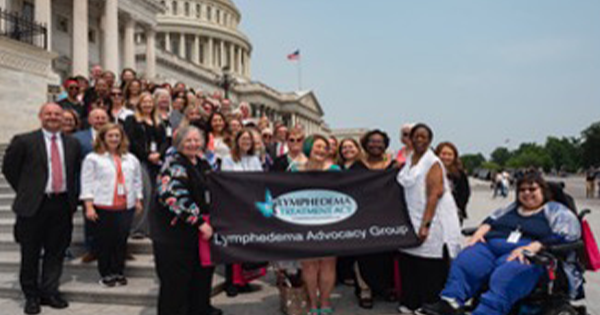Objective: is research aims to determine the incidence and risk factors of lymphedema after breast cancer treatment at the oncology unit of a hospital in Kumasi, Ghana. Methods: A descriptive, retrospective survey was used in this study. Breast cancer and lymphoedema-related variables were collected from the medical records of breast cancer patients. Data were analysed using descriptive statistics and chi-square tests. Results: Among 313 patients treated for breast cancer, 31 (9.9%) developed lymphedema aer treatment. A chi-square test showed that axillary lymph node dissection was statistically a signicant risk factor of lymphoedema (Chi-square test value = 7.055, P=0.008). Radiation and late stage of breast cancer diagnosis may have contributed in development of lymphedema despite having P value > 0.05. Age, BMI and hypertension were also not associated with lymphoedema. Conclusion: is study provides evidence that the incidence of lymphedema was 9.9% with axillary lymph node dissection as a statistically signicant risk factor of lymphedema. With the majority of breast cancer patients presenting with late-stage lymphoedema and also undergoing axillary lymph node dissection, lymphoedema will continue to be a problem in Ghana. Knowing the incidence and risk factors of lymphoedema not only assists in the early detection and eective management of the condition, but also provides baseline data for further research on lymphedoema in Ghana. Providing comfort and restoring function through lymphoedema management is important to maximising quality of life for patients. Lymphoedema management in late-stage breast cancer is particularly critical to comfort and quality of life.




